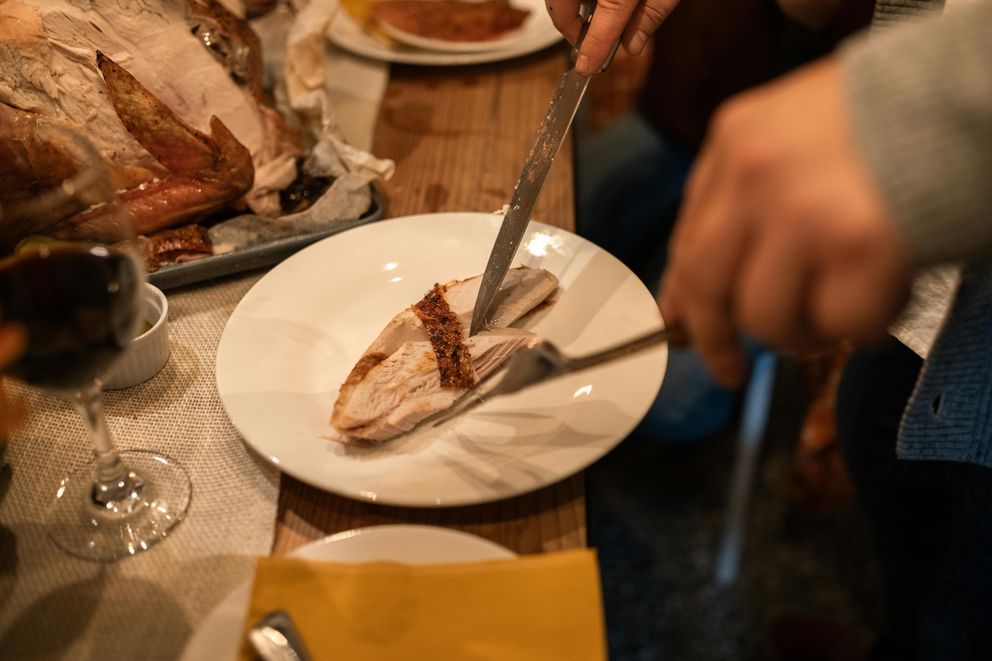
How the Carnivore Diet Impacts Women’s Body Composition: Insights for Fat Loss and Muscle Gain
The carnivore diet is more than just an eating plan—it’s a full-body transformation strategy that can uniquely affect body composition, particularly w...

Hey ladies, let’s talk about meat. Not your chatty ex, but actual meat—the kind you eat. We’re diving into the carnivore diet. If you’re into fitness or just starting out, you might wonder if eating only animal products can help.
Let’s dig in and see if this meaty plan fits your goals, workouts, and overall health.
The carnivore diet is all about eating animal products. That means beef, pork, chicken, fish, eggs, and even organ meats like liver. No veggies, fruits, or grains. It’s a high-protein, low-carb diet straight from the butcher shop.
You might think, “No plants? How will I survive?” Well, fans of the carnivore diet say you can thrive on it. They claim it reduces inflammation, improves digestion, and boosts mental clarity. Plus, you’ll be in the company of other meat lovers who swear by its benefits.
A big perk of the carnivore diet is its high protein content. Protein is essential for muscle repair and growth. When you lift weights or do high-intensity workouts, your muscles need protein. Think of your muscles as builders—protein is their building material. More protein means stronger muscles. If you want toned arms or a strong core, this diet might help.
Protein Facts:
What about energy? Without carbs, will you feel sluggish? Not necessarily. The carnivore diet is also rich in fats, a great energy source. When your body learns to burn fat for fuel, you might have more stable energy levels.
Fat Facts:
However, switching to this diet can be tough at first. Your body needs time to adapt. You might feel tired or have headaches, known as the “keto flu.” But once you adjust, many people report feeling more energetic and having better endurance.
Let’s talk hormones. Women’s bodies are complex, and diets can affect hormones. Some women on the carnivore diet have better menstrual cycles and less PMS. Others might experience issues.
Hormone Facts:
Listen to your body. If you feel great and your workouts are strong, awesome! If not, you might need to adjust. Try eating more fatty meats to get enough calories and nutrients. It’s also smart to talk to a healthcare professional about your diet.

Sticking to the carnivore diet requires discipline, which also helps your fitness routine. Paying attention to what you eat and how it makes you feel can create a better relationship with your body.
The goal is to feel good in your own skin. If the carnivore diet makes you feel amazing, with energy to spare, that’s great! If not, it’s okay to change things up. Your health journey is personal, and what works for one person might not work for another.
The carnivore diet can fuel your workouts and support your health. It’s high in protein and fat, which can boost your energy and muscle growth. But it’s not for everyone. Listen to your body and adjust as needed.
If you’re curious, give it a try. Grill that steak, scramble those eggs, and see how you feel. You might find that the carnivore diet is your perfect match, giving you the strength and stamina to crush your fitness goals with a side of sass and a whole lot of meat.
A: Yes, you can build muscle on the carnivore diet. The diet is high in protein, which is essential for muscle repair and growth. Consuming adequate protein gives your muscles the building blocks they need to become stronger. Many followers of the carnivore diet report significant muscle gains when combined with regular strength training.
A: Initially, you might experience a dip in energy as your body adapts to burning fat for fuel instead of carbs. This transition period, often referred to as the “keto flu,” can include symptoms like fatigue and headaches. However, once your body adjusts, many people find they have stable energy levels and improved endurance due to the steady supply of energy from fat stores.
A: The carnivore diet can support high-intensity workouts, but it might require an adjustment period. Since the diet is high in fats and protein but lacks carbohydrates, your body will switch to using fats as its primary fuel source. Some athletes on the carnivore diet report enhanced performance and quicker recovery times, but it’s crucial to listen to your body and ensure you’re consuming enough calories and nutrients to support intense physical activity.
A: The carnivore diet may aid in faster recovery due to its high protein content, which is crucial for muscle repair and growth. Additionally, the diet’s anti-inflammatory properties, attributed to the absence of plant-based foods that can sometimes cause inflammation, may help reduce muscle soreness and speed up recovery times. It’s important to consume a variety of animal products to get all necessary nutrients for optimal recovery.
A: Potential downsides include nutrient deficiencies, particularly in vitamins and minerals typically found in plant foods, such as vitamin C, potassium, and fiber. These deficiencies can impact overall health and workout performance. It’s also possible to experience digestive issues due to the lack of dietary fiber. To mitigate these risks, consider working with a healthcare professional to monitor your nutrient levels and adjust your diet as needed.

The carnivore diet is more than just an eating plan—it’s a full-body transformation strategy that can uniquely affect body composition, particularly w...

Traveling can make sticking to any diet challenging, and the carnivore diet is no exception. But with a little planning and creativity, it’s entirely ...

Committing to the carnivore diet can be a rewarding journey, but like any lifestyle change, it requires motivation and persistence—especially for wome...

When it comes to weight loss, it’s not just about what you eat, but also how you eat. Across the world, different cultural diets shape the way women a...

Gaining weight isn’t discussed as often as losing it, but for many women, it's just as important and challenging. Whether you're looking to add pounds...